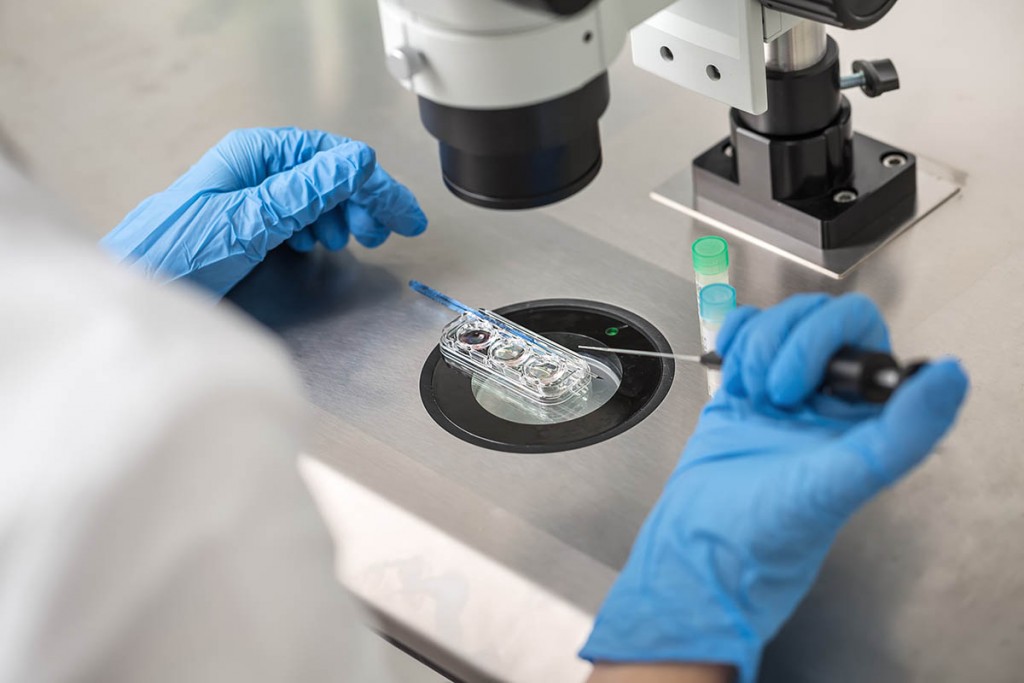In this article
Testosterone supports vital functions in the body. While both men and women produce testosterone, men need a much higher level of the hormone. It plays a role in puberty, sexual health, energy levels, mood, muscle growth, and overall health.
But overproduction, as well as underproduction of testosterone, can lead to numerous health complications in men’s bodies. The same is right for high testosterone in women which can result in mild to serious health complications.
Testosterone levels in men can be affected by numerous factors and can change over time
Read on to learn more about the causes and signs of high testosterone in men and discover what treatment options can help.
What can high testosterone do to men?
When people think of the effects of too much testosterone in men, they’re likely to think of negative behaviors, such as rage or poor impulse control. You might be surprised to learn that this is not necessarily the case.
Excessive testosterone levels in men are sometimes associated with mood swings and impaired decision-making. However, those are not the only symptoms many men experience or even the most common ones.
Signs of high testosterone in men
So what are the signs of too much testosterone in men? Commonly seen signs include:
- Acne
- Difficulty urinating
- Lowered sperm count
- Fluid retention, including swelling of legs and feet
- Increased appetite
- Trouble sleeping
- Headaches
- Increased muscle mass
- Irritability or mood swings
- Impaired judgment and decision making
- Weight gain
Keep in mind that these signs can vary depending on a man’s age, overall health and genetics
When high T levels are left untreated, symptoms can get worse. Over time, this might even lead to serious health concerns such as:
- Damage to the heart muscle
- Prostate enlargement
- Increased risk of a heart attack
- Higher blood pressure
- Higher cholesterol
- Liver disease
- Sleep apnea
Main causes of high testosterone in men
Testosterone levels can change throughout a man’s life and even vary throughout a typical day. Elevated testosterone in men can be hard to spot and is seen less often than low.
There are a number of factors that can cause increased testosterone production. Some common causes are discussed below.
Wrong dosage of testosterone treatment
Testosterone supplement treatments such as pills, shots, and gels are taken for low T levels in men. Sometimes they can cause an excess of your T levels from normal ranges. This is the most often the cause of too much testosterone in males.
Steroids
Using steroids to increase muscle mass or enhance athletic performance can cause a man’s body to produce an overabundance of testosterone.
Steroid abuse is also thought to be responsible for symptoms such as rage and extreme confusion.
Medications
Some medications to treat unrelated conditions can affect the amount of testosterone a men produces. It’s important to tell your doctor about any medications you’re taking, even vitamins or other over-the-counter medications.
Everything from pain medications to vitamin D supplements can affect your testosterone production
Tumors
Growths near areas of the body that produce hormones, such as the testicles or adrenal gland, can cause very excessive testosterone in men. Both cancerous and benign growths can affect testosterone production.
Your doctor may want to rule this out early on, especially if you’re not currently being treated with any form of testosterone replacement therapy.
Congenital Adrenal Hyperplasia (CAH)
CAH is a genetic condition that causes the adrenal glands to produce a higher than average amount of testosterone.
Severe cases of CAH are diagnosed in infancy, but people with milder cases might show very few symptoms until later in life.
Conditions affecting hormone production
Testosterone levels can be impacted by any condition or disease that causes hormone dysregulation. This is most often seen in hyperthyroidism and other thyroid conditions.
How to diagnose high testosterone
A doctor might recommend a testosterone test if a men shows signs of abnormally high testosterone. Checking testosterone levels requires a blood draw and laboratory test. The test is normally referred to as total testosterone or testosterone serum test.
Since testosterone levels can fluctuate rapidly, you may need to have the test done more than once. Doctors often want to see at least two tests with abnormally high results before the final diagnosis.
You might also need to have an X-ray done if your doctor suspects your increased testosterone is being caused by a tumor
Treatment for high testosterone in males
There are many treatment options once you’ve been diagnosed. The treatment for men can vary and might include lifestyle changes, medication changes, and visits to a specialist.
Your specific treatment plan will depend on the underlying cause of your increased testosterone level. In some cases, it might be as simple as adjusting or stopping your TRT.
What Doctor Can Help?
An endocrinologist is a preferred doctor to treat your increased testosterone levels. He will monitor your testosterone levels on a regular basis to make sure they are stabilizing regardless of the treatment plan.
However, in some cases, you might need to treat the underlying cause first. For example, high testosterone levels caused by a malignant tumor would be secondary to the tumor itself. You’d need to see an oncologist to treat the tumor before taking any other steps.
What Food Lowers Testosterone?
The production of testosterone in the body can be affected by the foods you eat. Talk to the doctor before making any major changes to your diet. Here some foods thought to lower testosterone:
- Soy products
- Wine and other alcohol
- Flaxseeds
- Vegetable oils
- Licorice root
- Mint
- Dairy
- Processed grains such as pastries
- Trans fats
The Takeaway
Testosterone levels in the normal range are an important piece of your overall health. When your body produces too little, or too much, you’ll feel adverse effects.
You can achieve the appropriate balance of hormones for your body by working with a doctor. Keeping your testosterone levels in range will help you not only feel better today but protect your health in the years to come.






